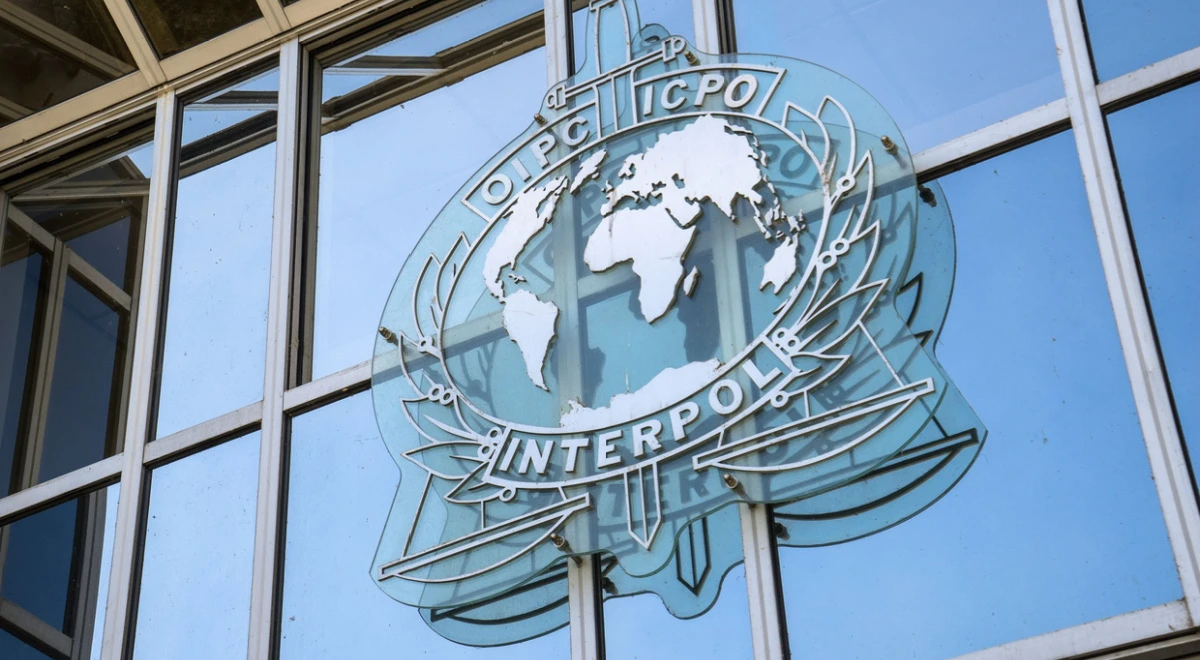INTERPOL Operation HAECHI IV – Expanded Details
Authors:
• SCARS Editorial Team – Society of Citizens Against Relationship Scams Inc.
• INTERPOL
USD $300 Million Seized And 3,500 Suspects Arrested In International Financial Crime Operation HAECHI IV
Interpol Operation HAECHI IV was a global operation targeting cyber-enabled financial scams, running from July to December 2023.
Operation HAECHI IV Focus On Specific Scams
- Voice phishing: Scammers posing as legitimate institutions to trick victims into revealing personal information or making fraudulent transfers.
- Romance scams: Building online relationships to gain trust and manipulate victims into sending money.
- Online sextortion: Threatening to release compromising material unless victims provide money or other favors.
- Investment fraud: Promising unrealistic returns to lure victims into investing in fake schemes.
- Money laundering associated with illegal online gambling: Using online gambling platforms to funnel and hide illegally obtained funds.
- Business email compromise (BEC) fraud: Impersonating legitimate businesses to trick employees into making unauthorized payments.
- E-commerce fraud: Deceptive online marketplaces or transactions to defraud buyers or sellers.
Operation HAECHI IV Results
- 350 million euros and 273 million USD: Assets seized across 34 countries.
- 3,500 suspects arrested: Including scam operators and money launderers.
- Disruption of major illegal networks: Including the dismantling of an illegal gambling network.
- Improved international cooperation: Sharing information and coordinating efforts between law enforcement agencies.
Operation HAECHI IV Challenges
- Global nature of scams: Coordinating investigations and prosecutions across different jurisdictions can be complex.
- Technological advancements: Scammers utilize ever-evolving methods, requiring law enforcement to adapt constantly.
- Victim awareness: Many victims go unreported, hindering investigations and prevention efforts.
Operation HAECHI IV Significance
- Operation HAECHI IV marks a significant success in combating cyber-enabled financial crime.
- It demonstrates the importance of international cooperation in tackling these global threats.
- It raises awareness about various online scams and encourages victims to report them.
Operation HAECHI IV emphasizes the key role of INTERPOL in enabling police worldwide to address the growing complexity of cyber-enabled scams
Operation HAECHI IV Arrests
Arrests were made in several countries, including:
- South Korea: This was the lead country for the operation, and Filipino and Korean authorities collaborated in capturing a notorious online gambling criminal in Manila.
- United States: US law enforcement participated in the operation, targeting various scam networks operating within the country.
- United Kingdom: UK authorities collaborated with Interpol on investigations and arrests related to online financial crimes.
- Japan: Japanese law enforcement played a role in cracking down on cybercrime within their jurisdiction.
- Hong Kong (China): The operation extended to Hong Kong, with local authorities taking action against scam rings operating in the region.
- India: Indian authorities contributed to dismantling illicit online financial activities originating from within the country.
34 Countries where INTERPOL confirmed arrests occurred during Operation HAECHI IV:
- Argentina
- Australia
- Brunei
- Cambodia
- Cayman Islands
- Ghana
- Hong Kong (China)
- India
- Indonesia
- Ireland
- Japan
- Kyrgyzstan
- Laos
- Liechtenstein
- Malaysia
- Maldives
- Mauritius
- Nigeria
- Pakistan
- Philippines
- Poland
- Korea (South)
- Romania
- Seychelles
- Singapore
- Slovenia
- South Africa
- Spain
- Sweden
- Thailand
- United Arab Emirates
- United Kingdom
- United States
- Vietnam
The success of Operation HAECHI IV in apprehending suspects across such a diverse range of nations highlights the growing global collaboration in tackling cross-border cybercrime. This level of cooperation is crucial in effectively combating the complex and evolving nature of online scams.

Interpol Operation HAECHI IV
According to INTERPOL
LYON, FRANCE – A transcontinental police operation against online financial crime has concluded with almost 3,500 arrests and seizures of USD 300 million (approx. EUR 273 million) worth of assets across 34 countries.
The six-month Operation HAECHI IV (July-December 2023) targeted seven types of cyber-enabled scams: voice phishing, romance scams, online sextortion, investment fraud, money laundering associated with illegal online gambling, business email compromise fraud, and e-commerce fraud.
Investigators worked together to detect online fraud and freeze associated bank and virtual asset service provider (VASP) accounts using INTERPOL’s Global Rapid Intervention of Payments (I-GRIP), a stop-payment mechanism that helps countries work together to block criminal proceeds.
Cooperation between Filipino and Korean authorities led to the arrest in Manila of a high-profile online gambling criminal after a two-year manhunt by Korea’s National Police Agency.
Authorities blocked 82,112 suspicious bank accounts, seizing a combined USD 199 million in hard currency and USD 101 million in virtual assets.
“The seizure of USD 300 million represents a staggering sum and clearly illustrates the incentive behind today’s explosive growth of transnational organized crime. This represents the savings and hard-earned cash of victims. This vast accumulation of unlawful wealth is a serious threat to global security and weakens the economic stability of nations worldwide.” said Stephen Kavanagh, INTERPOL’s Executive Director of Police Services
“HAECHI IV’s 200 per cent surge in arrests shows the persistent challenge of cyber-enabled crime, reminding us to stay alert and keep refining our tactics against online fraud, which is why INTERPOL operations like this are so important. Thank you to all concerned, especially colleagues from the Philippines and Korea.”
Investment fraud, business email compromise, and e-commerce fraud accounted for 75 percent of cases investigated in HAECHI IV.
Working with a number of VASPs, INTERPOL helped frontline officers identify 367 virtual asset accounts linked to transnational organized crime. Police in member countries froze the assets and investigations are ongoing.
INTERPOL’s Head of National Central Bureau in Korea, Kim Dong Kwon, said: “It is remarkable that global efforts to stay ahead of the latest criminal trends have resulted in a substantial growth in operational outcomes.
“Despite criminals’ endeavors to gain illicit advantages through contemporary trends, they will eventually be apprehended and face due punishment. To accomplish this, Project HAECHI will consistently evolve and expand its scope.”
Two Purple Notices were published during Operation HAECHI IV warning countries about emerging digital investment fraud practices.
One alerted INTERPOL member countries to a new scam detected in Korea involving the sale of Non-Fungible Tokens with promises of huge returns, which turned out to be a “rug pull”, a growing scam in the crypto industry where developers abruptly abandon a project and investors lose their money.
The second purple notice warned about the use of AI and deep fake technology to lend credibility to scams by enabling criminals to hide their identities and to pretend to be family member, friends or love interests.
The UK leg of the operation reported several cases where AI-generated synthetic content was used to deceive, defraud, harass, and extort victims, particularly through impersonation scams, online sexual blackmail, and investment fraud. Cases also involved the impersonation of people known to the victims through voice cloning technology.
HAECHI operations are supported financially by Korea.
HAECHI IV Participating Countries
Argentina, Australia, Brunei, Cambodia, Cayman Islands, Ghana, Hong Kong (China), India, Indonesia, Ireland, Japan, Kyrgyzstan, Laos, Liechtenstein, Malaysia, Maldives, Mauritius, Nigeria, Pakistan, Philippines, Poland, Korea, Romania, Seychelles, Singapore, Slovenia, South Africa, Spain, Sweden, Thailand, United Arab Emirates, United Kingdom, United States, Viet Nam.
More:
- EUROPOL Money Mule Action 2023 – Over 10,000 Identified (scamsnow.com)
- Crypto Seizure Breaking News: Major Romance & Pig Butchering Scam Organization Disrupted 2023 (scamsnow.com)
- Euro Phishing Gang Shut Down Europol & Partners – 2023 (scamsnow.com)
- China Arrests 706 Chinese Scammers Involved In Phone & Internet Scams From Myanmar (scamsnow.com)
- Chinese Arrest 417 Phone Scammers In The Philippines (scamsnow.com)
- China Cracks Down On Scammers – Chinese & Myanmar Police Arrests 1207 Scammers In Myanmar (scamsnow.com)
- China Cracks Down On Scammers – Chinese & Myanmar Police Arrests 269 Scammers In Myanmar (scamsnow.com)
- Criminal Cryptocurrency Boss Jailed For 11,196 Years In Turkey For Fraud (scamsnow.com)
- 88 Chinese Scammers Arrested In Indonesia (scamsnow.com)
- Indian Scammer Call Center Shut Down 84 Arrested (scamsnow.com)
- Interpol Operation Jackal – Arrested Over 100 (scamsnow.com)
- Europol Arrests 70 Phone Scammers Plus Kingpin (scamsnow.com)
- 2,700 Scam Slaves Rescued In The Philippines [VIDEO] (scamsnow.com)
SCARS Resources:
- For New Victims of Relationship Scams newvictim.AgainstScams.org
- Subscribe to SCARS Newsletter newsletter.againstscams.org
- Sign up for SCARS professional support & recovery groups, visit support.AgainstScams.org
- Find competent trauma counselors or therapists, visit counseling.AgainstScams.org
- Become a SCARS Member and get free counseling benefits, visit membership.AgainstScams.org
- Report each and every crime, learn how to at reporting.AgainstScams.org
- Learn more about Scams & Scammers at RomanceScamsNOW.com and ScamsNOW.com
- Global Cyber Alliance ACT Cybersecurity Tool Website: Actionable Cybersecurity Tools (ACT) (globalcyberalliance.org)
- Self-Help Books for Scam Victims are at shop.AgainstScams.org
- Donate to SCARS and help us help others at donate.AgainstScams.org
- Worldwide Crisis Hotlines: International Suicide Hotlines – OpenCounseling : OpenCounseling
- Campaign To End Scam Victim Blaming – 2024 (scamsnow.com)
More ScamsNOW.com Articles
-/ 30 /-
What do you think about this?
Please share your thoughts in a comment below!
SCARS LINKS: AgainstScams.org RomanceScamsNOW.com ContraEstafas.org ScammerPhotos.com Anyscam.com ScamsNOW.com
reporting.AgainstScams.org support.AgainstScams.org membership.AgainstScams.org donate.AgainstScams.org shop.AgainstScams.org
youtube.AgainstScams.org linkedin.AgainstScams.org facebook.AgainstScams.org
Important Information for New Scam Victims
- Please visit www.ScamVictimsSupport.org – a SCARS Website for New Scam Victims & Sextortion Victims.
- SCARS Institute now offers its free, safe, and private Scam Survivor’s Support Community at www.SCARScommunity.org – this is not on a social media platform, it is our own safe & secure platform created by the SCARS Institute especially for scam victims & survivors.
- SCARS Institute now offers a free recovery learning program at www.SCARSeducation.org.
- Please visit www.ScamPsychology.org – to more fully understand the psychological concepts involved in scams and scam victim recovery.
If you are looking for local trauma counselors, please visit counseling.AgainstScams.org
If you need to speak with someone now, you can dial 988 or find phone numbers for crisis hotlines all around the world here: www.opencounseling.com/suicide-hotlines
Statement About Victim Blaming
Some of our articles discuss various aspects of victims. This is both about better understanding victims (the science of victimology) and their behaviors and psychology. This helps us to educate victims/survivors about why these crimes happened and not to blame themselves, better develop recovery programs, and help victims avoid scams in the future. At times, this may sound like blaming the victim, but it does not blame scam victims; we are simply explaining the hows and whys of the experience victims have.
These articles, about the Psychology of Scams or Victim Psychology – meaning that all humans have psychological or cognitive characteristics in common that can either be exploited or work against us – help us all to understand the unique challenges victims face before, during, and after scams, fraud, or cybercrimes. These sometimes talk about some of the vulnerabilities the scammers exploit. Victims rarely have control of them or are even aware of them, until something like a scam happens, and then they can learn how their mind works and how to overcome these mechanisms.
Articles like these help victims and others understand these processes and how to help prevent them from being exploited again or to help them recover more easily by understanding their post-scam behaviors. Learn more about the Psychology of Scams at www.ScamPsychology.org
SCARS INSTITUTE RESOURCES:
If You Have Been Victimized By A Scam Or Cybercrime
♦ If you are a victim of scams, go to www.ScamVictimsSupport.org for real knowledge and help
♦ SCARS Institute now offers its free, safe, and private Scam Survivor’s Support Community at www.SCARScommunity.org/register – this is not on a social media platform, it is our own safe & secure platform created by the SCARS Institute especially for scam victims & survivors.
♦ Enroll in SCARS Scam Survivor’s School now at www.SCARSeducation.org
♦ To report criminals, visit https://reporting.AgainstScams.org – we will NEVER give your data to money recovery companies like some do!
♦ Follow us and find our podcasts, webinars, and helpful videos on YouTube: https://www.youtube.com/@RomancescamsNowcom
♦ Learn about the Psychology of Scams at www.ScamPsychology.org
♦ Dig deeper into the reality of scams, fraud, and cybercrime at www.ScamsNOW.com and www.RomanceScamsNOW.com
♦ Scam Survivor’s Stories: www.ScamSurvivorStories.org
♦ For Scam Victim Advocates visit www.ScamVictimsAdvocates.org
♦ See more scammer photos on www.ScammerPhotos.com
You can also find the SCARS Institute’s knowledge and information on Facebook, Instagram, X, LinkedIn, and TruthSocial
Psychology Disclaimer:
All articles about psychology and the human brain on this website are for information & education only
The information provided in this and other SCARS articles are intended for educational and self-help purposes only and should not be construed as a substitute for professional therapy or counseling.
Note about Mindfulness: Mindfulness practices have the potential to create psychological distress for some individuals. Please consult a mental health professional or experienced meditation instructor for guidance should you encounter difficulties.
While any self-help techniques outlined herein may be beneficial for scam victims seeking to recover from their experience and move towards recovery, it is important to consult with a qualified mental health professional before initiating any course of action. Each individual’s experience and needs are unique, and what works for one person may not be suitable for another.
Additionally, any approach may not be appropriate for individuals with certain pre-existing mental health conditions or trauma histories. It is advisable to seek guidance from a licensed therapist or counselor who can provide personalized support, guidance, and treatment tailored to your specific needs.
If you are experiencing significant distress or emotional difficulties related to a scam or other traumatic event, please consult your doctor or mental health provider for appropriate care and support.
Also read our SCARS Institute Statement about Professional Care for Scam Victims – click here
If you are in crisis, feeling desperate, or in despair, please call 988 or your local crisis hotline – international numbers here.
More ScamsNOW.com Articles
A Question of Trust
At the SCARS Institute, we invite you to do your own research on the topics we speak about and publish. Our team investigates the subject being discussed, especially when it comes to understanding the scam victims-survivors’ experience. You can do Google searches, but in many cases, you will have to wade through scientific papers and studies. However, remember that biases and perspectives matter and influence the outcome. Regardless, we encourage you to explore these topics as thoroughly as you can for your own awareness.




























![NavyLogo@4x-81[1] INTERPOL Operation HAECHI IV - Over 3,500 Successful Arrests - Expanded Details - 2023](https://scamsnow.com/wp-content/uploads/2025/04/NavyLogo@4x-811.png)
![scars-institute[1] INTERPOL Operation HAECHI IV - Over 3,500 Successful Arrests - Expanded Details - 2023](https://scamsnow.com/wp-content/uploads/2025/04/scars-institute1.png)

![niprc1.png1_-150×1501-1[1] INTERPOL Operation HAECHI IV - Over 3,500 Successful Arrests - Expanded Details - 2023](https://scamsnow.com/wp-content/uploads/2025/04/niprc1.png1_-150x1501-11.webp)